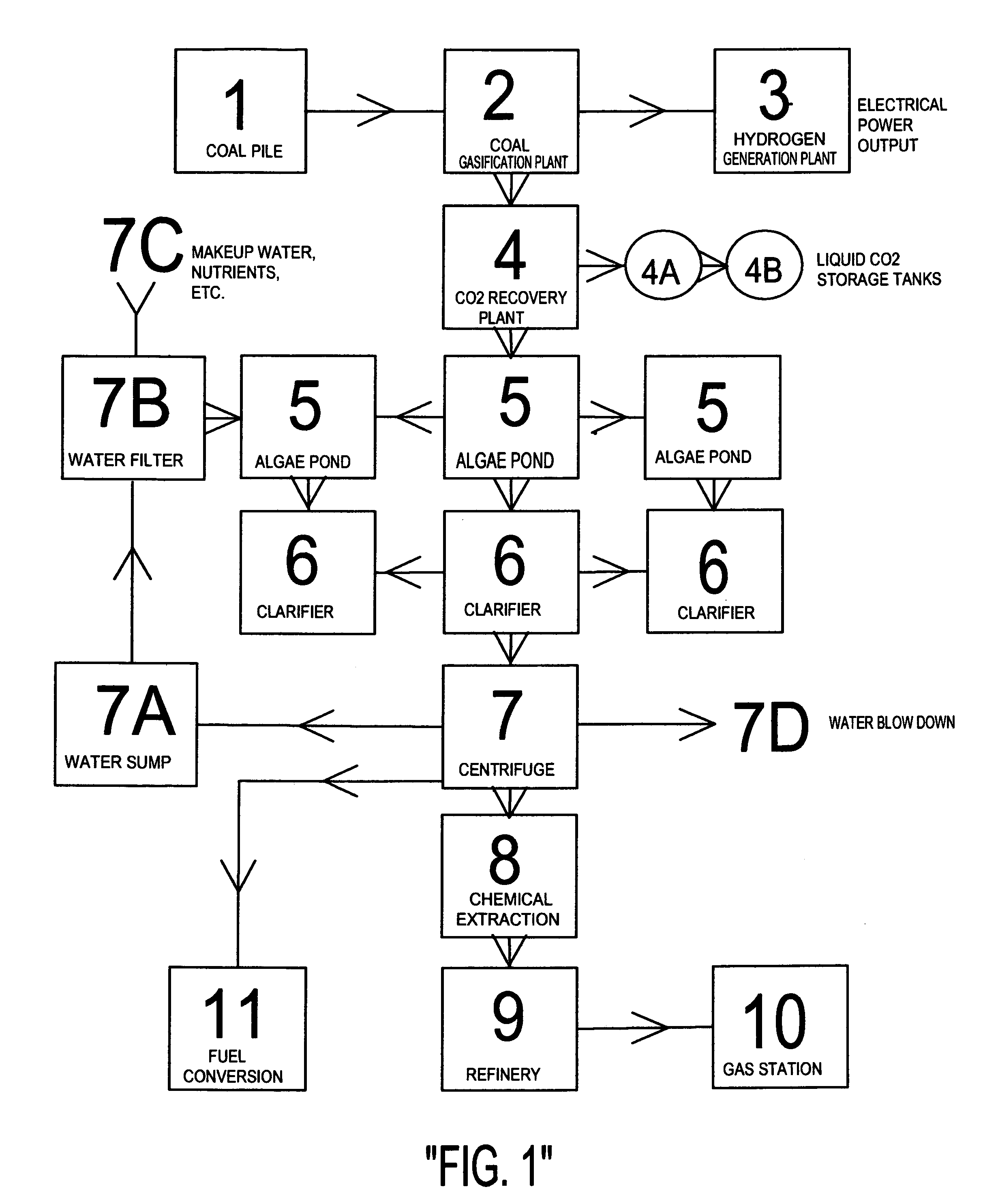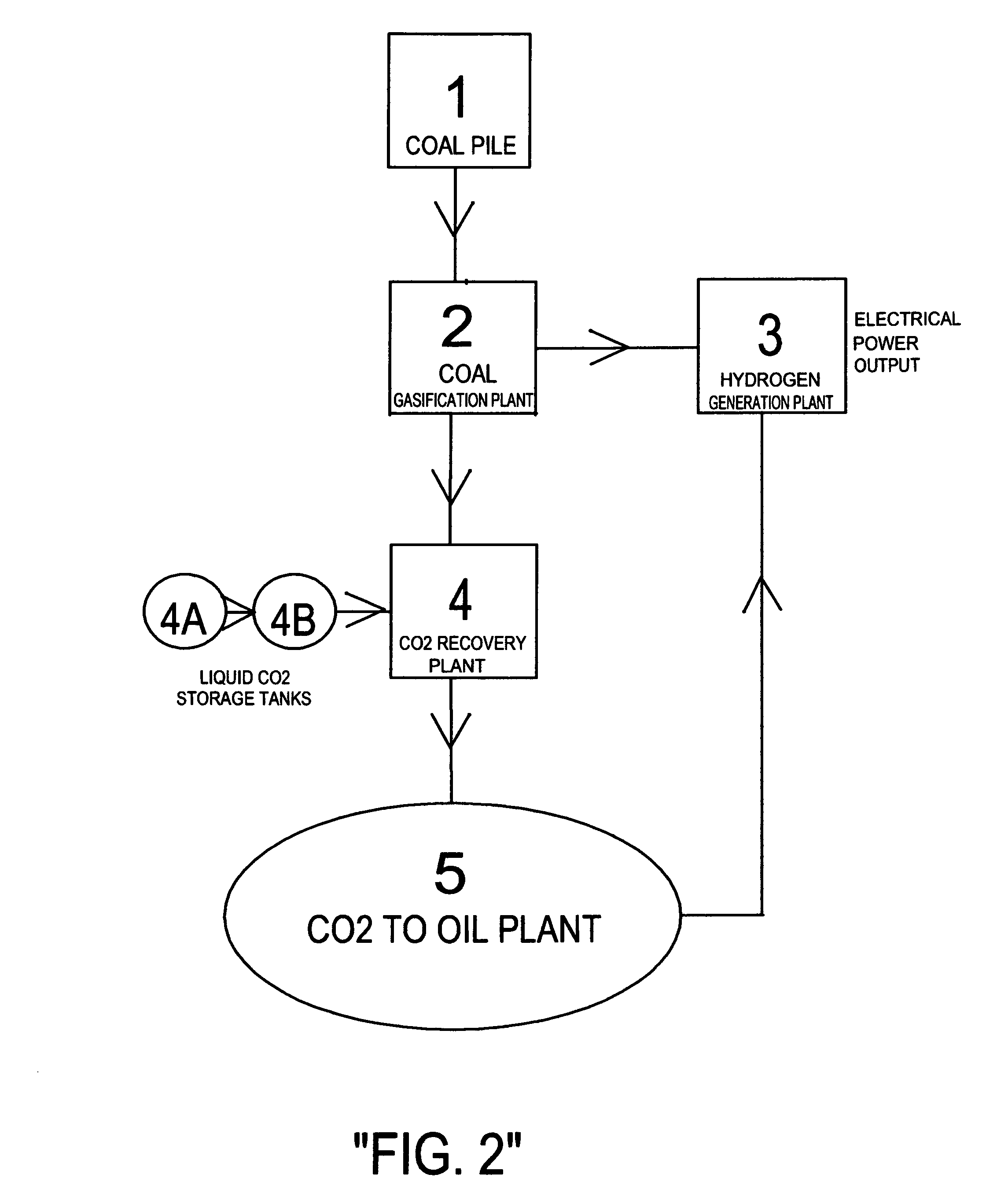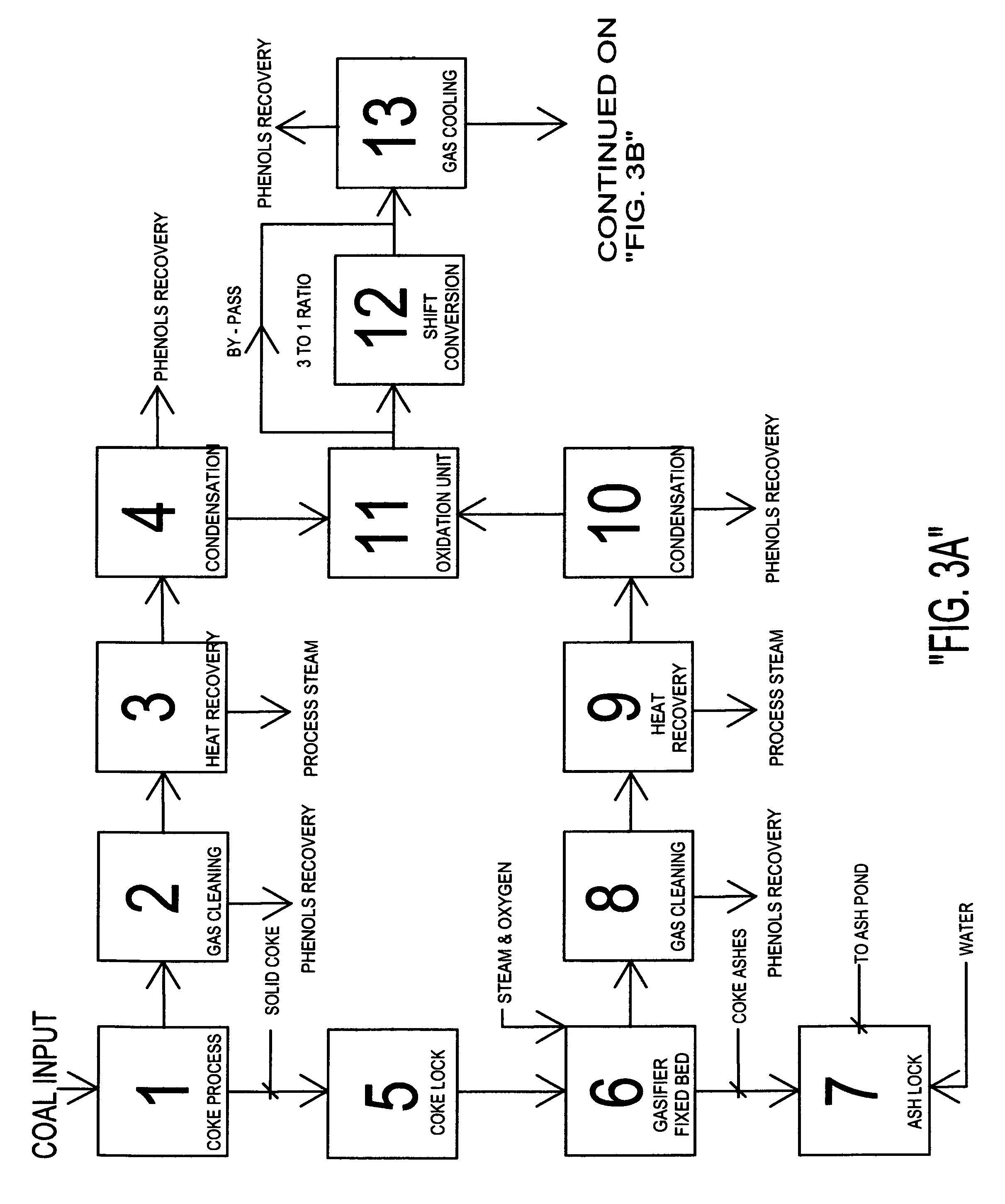Method for capture carbon and storage (CCS process) from coal fuel gas and the storage as biofuels: oil, gasoline, biodiesel, jet fuel, ethanol, and methane
a carbon dioxide and coal fuel gas technology, applied in the field of recovery of low purity carbon dioxide, can solve the problems of high price of oil, gasification is not a complete combustion process, and the prior technology on this scale facility is very limited, and the global warming and the high price of oil
- Summary
- Abstract
- Description
- Claims
- Application Information
AI Technical Summary
Benefits of technology
Problems solved by technology
Method used
Image
Examples
Embodiment Construction
[0124]In the drawing there is shown a preferred embodiment of the invention wherein either a low rank or high rank coal is partially oxidized in a coal gasification plant and produces hydrogen and a relatively high purity carbon dioxide gas stream. The hydrogen is burned in a modified burner of the coal power generation plant, or any other coal combustion industrial facility. It produces an environmental clean power plant's stack emissions, water vapor. The preferred embodiment captures the carbon dioxide gas at the gasification plant and converts the gaseous CO2 for commercial production into an oil, gasoline, biodiesel fuel, jet fuel, ethanol, or methane gas. The oil conversion is accomplished by a biomass algae process, and grown in an oil plantation's oil paddies.
[0125]The coal pile 1 of FIG. 1 is feed by conveyor to the coal gasification plant 2, see FIGS. 3a &3b. The coal gasification plant 2 converts the coal to hydrogen (H2) gases and concentrates the high purity carbon diox...
PUM
| Property | Measurement | Unit |
|---|---|---|
| volume ratio | aaaaa | aaaaa |
| temperature | aaaaa | aaaaa |
| temperature | aaaaa | aaaaa |
Abstract
Description
Claims
Application Information
 Login to View More
Login to View More - R&D
- Intellectual Property
- Life Sciences
- Materials
- Tech Scout
- Unparalleled Data Quality
- Higher Quality Content
- 60% Fewer Hallucinations
Browse by: Latest US Patents, China's latest patents, Technical Efficacy Thesaurus, Application Domain, Technology Topic, Popular Technical Reports.
© 2025 PatSnap. All rights reserved.Legal|Privacy policy|Modern Slavery Act Transparency Statement|Sitemap|About US| Contact US: help@patsnap.com



